Table of Content
Search engine optimization (SEO) is vital for making your online content stand out. In today’s digital world, search engines drive most web traffic, making it crucial to understand SEO terms for promoting your business, blog, or website. However, SEO’s technical language can be overwhelming for beginners. This guide introduces popular keywords for SEO, helping you grasp the basics and create an effective strategy for better results.
In this post, you’ll learn essential SEO terms for beginners, their importance, and how they impact content marketing, online visibility, and user conversions. We’ll demystify the language you need to know and explain each SEO term and its role in digital marketing and search visibility strategies. Explore the essential SEO terms that form the foundation of successful Search Engine Optimization practices!
Foundational SEO Terms
1. SEO (Search Engine Optimization)
Definition: SEO, or Search Engine Optimization, is the process of enhancing a website’s visibility on search engine results pages (SERPs) for targeted keywords. It involves various techniques such as keyword research, on-page SEO, off-page SEO, and technical SEO to improve site ranking, helping search engines understand the site’s content better.
Importance: Effective SEO terminology boosts your site’s ranking in SERPs, attracting more organic traffic and potential customers. Increased visibility leads to higher engagement and conversion rates, building trust and credibility. It establishes your brand as an authority in your niche, improving its reputation with your audience.
2. SERP (Search Engine Results Page)
Definition: A Search Engine Results Page (SERP) is a page displayed by a search engine in response to a user query. This page includes a mix of organic search results, paid advertisements, and diverse content formats such as featured snippets, images, and videos.
Importance: Ranking on the first page of the SERP is crucial for online visibility since most users don’t venture beyond the first page. By optimizing for SERP rankings through targeted SEO key terms and strategies, you can meet the expectations of both search engines and users. A higher SERP position increases the chances of your website being noticed and clicked, leading to more web traffic and improved engagement metrics.
3. Keywords
Definition: Keywords are the words or phrases people type into search engines to find specific information. They are vital in the SEO terminology process, helping search engines determine how relevant your content is to a search query.
Importance: Keywords are the foundation of Search Engine Optimization. They guide search engines in understanding your content’s main topics. Using popular keywords for SEO effectively boosts your website’s visibility, helping you reach the right audience. This enhances the user experience by providing relevant and valuable information that matches their search intent. Understanding these basic SEO key terms is crucial for improving online visibility and engagement.
4. Popular Keywords Research
Definition: Popular keywords for SEO research involves identifying and analyzing the SEO terms your audience frequently uses. It requires understanding the language and expressions potential customers use when searching for information in your niche.
Importance: Popular keywords for SEO research helps you target terms with high search volume and relevance, driving traffic that is more likely to convert. For example, focusing on “vegan meal prep ideas” can attract health-conscious individuals looking for easy recipes, increasing the likelihood that they will explore your content and follow your brand. Integrating SEO terms into your strategy enhances your ability to effectively reach and engage your target audience.
5. Long-Tail Keywords
Definition: Long-tail keywords are detailed, specific phrases that target niche audiences. Although these keywords generally have lower search volume, they bring higher intent and conversion potential because they attract users with a clear goal.
Importance: Long-tail keywords are crucial for driving highly targeted traffic, making them essential for successful SEO strategies. They help you compete in less crowded markets, increasing your chances of ranking higher on search engines. For instance, using the long-tail keyword “how to improve SEO terminology for small businesses” can attract small business owners actively looking for actionable strategies, making them more likely to engage with your content or services.

On-Page and Off-Page SEO Terms
6. On-Page SEO
Definition: On-page SEO focuses on optimizing various elements directly on your website to improve search engine rankings. This includes optimizing title tags, meta descriptions, headers, content, and images to ensure they are relevant and attractive to both search engines and users. Important SEO terms for on-page SEO include keywords, HTML tags, and URL structure.
Importance: On-page SEO is essential for making each webpage relevant and visible in search results. Proper on-page optimization enhances user experience, boosts click-through rates (CTR), and improves search engine rankings.
7. Off-Page SEO
Definition: Off-page SEO encompasses external activities that impact your search rankings, such as acquiring backlinks from reputable websites, engaging in social media marketing, and conducting influencer outreach. Important SEO key terms for off-page SEO include backlinks, domain authority, and social signals. These efforts bolster your site’s credibility and authority in the eyes of search engines.
Importance: Off-page SEO enhances your site’s authority and credibility through external validation. It improves rankings by signaling to search engines that your site is a trusted and valuable resource.
8. Backlinks
Definition: Backlinks, also known as inbound links, are links from one website to another. They serve as endorsements or recommendations, signaling the quality and relevance of your content.
Importance: Backlinks from reputable sites increase your site’s credibility and search engine ranking. They are a crucial component of off-page SEO, as they demonstrate to search engines that your content is valuable, thereby elevating your site’s authority and visibility.
9. Anchor Text
Definition: Anchor text is the clickable words or phrases in a hyperlink that direct users to another webpage, usually underlined or highlighted in a different color for emphasis.
Importance: Employing relevant and descriptive anchor text helps search engines grasp the context and content of the linked page, thereby enhancing SEO by indicating subject matter and relevance. This practice not only aids in search engine indexing but also improves user experience by providing clear navigation paths.
10. Title Tag
Definition: A title tag is an essential HTML element that defines the title of a webpage and appears prominently as the clickable headline in search engine results pages (SERPs). Placed within the `<head>` section of a webpage’s HTML, title tags play a crucial role in Search Engine Optimization.
Importance: Optimizing title tags with relevant and popular keywords for SEO is vital for attracting clicks and improving SEO rankings. A well-crafted title tag offers a clear and accurate description of the page’s content, influencing users to click through search results.
11. Meta Description
Definition: A meta description is a concise summary of a webpage’s content, appearing beneath the title in SERPs. This snippet provides a preview of what the page offers and is crucial for user engagement.
Importance: Crafting compelling meta descriptions enhances click-through rates by enticing users to visit your site, thereby boosting SEO performance. While meta descriptions don’t directly impact search rankings, they influence user clicks, affecting visibility.
12. Keyword Density
Definition: Keyword density measures the frequency of a specific keyword or phrase on a webpage relative to the total word count. It helps assess the focus and relevance of content for search engines.
Importance: Maintaining appropriate keyword density ensures search engines recognize content relevance without triggering penalties for keyword stuffing. Balanced keyword use keeps content natural and readable while effectively targeting search SEO terms.

Technical SEO Terms
13. Alt Text
Definition: Alt text, short for alternative text, is a crucial element for SEO and accessibility. It provides a textual description of an image, which helps visually impaired users understand the image’s content through screen readers. Additionally, alt text assists search engines in interpreting and indexing images effectively.
Importance: Writing clear and detailed alt text enhances website accessibility, making your site more inclusive. For SEO, it offers search engines valuable context, increasing the chances of your images appearing in search results. This practice boosts your website’s overall content relevance and visibility.
14. URL Structure
Definition: URL structure refers to the organization and format of web addresses. SEO-friendly URLs are clean, descriptive, and include relevant and popular keywords for SEO, which make navigation easier for both users and search engines. Avoid unnecessary parameters to maintain a clear and organized web presence.
Importance: A well-optimized URL structure improves SEO by enhancing usability and relevance. Clear, keyword-rich URLs can boost search engine ranking by signaling the page’s content focus, aiding in efficient indexing, and increasing visibility in search results.
15. 301 Redirect (Permanent Redirection)
Definition: A 301 redirect is a permanent redirection method, that guides both users and search engines from one URL to another. It’s essential when a webpage permanently changes its address, ensuring a smooth transition without errors.
Importance: Implementing 301 redirects correctly is crucial for maintaining user access and preserving SEO value. By transferring the original page’s ranking power to the new URL, you protect search engine rankings and ensure continuous user access.
16. 404 Not Found
Definition: A 404 Not Found error happens when users try to access a webpage that doesn’t exist, often due to mistyped URLs, moved pages without redirects, or page deletions.
Importance: While 404 errors are common, too many can harm SEO and user experience. Managing these errors with custom error pages that redirect users to relevant content is crucial, as it keeps users engaged and enhances site health.
17. Schema Markup
Definition: Schema markup is microdata added to your website’s HTML, helping search engines better understand your content. This can enhance search results, leading to improved snippets and knowledge panels in SERPs.
Importance: Using schema markup can increase your website’s visibility in search results, leading to higher click-through rates and more traffic. It offers extra information at a glance, potentially boosting user engagement and conversion rates.
18. Page Speed Optimization
Definition: Page speed refers to how quickly a website loads and becomes usable for visitors. Key factors include server performance, image optimization, and site architecture.
Importance: Faster loading times significantly improve user experience, encouraging visitors to stay longer on your site. Search engines like Google prioritize fast-loading websites, making page speed a crucial Search Engine Optimization ranking factor. A quick page speed also reduces bounce rates, positively impacting search rankings.
19. Responsive Web Design for SEO
Definition: Responsive web design is a strategy that ensures your website adapts to different devices and screen sizes, including desktops, tablets, and smartphones. This adaptability is achieved using flexible grids, layouts, and CSS media queries.
Importance: Search engines, especially Google, prioritize mobile-friendly and responsive websites in their rankings. Having a responsive design not only improves SEO but also enhances user experience, leading to better engagement, increased time-on-site, and lower bounce rates.
20. Crawling and Indexing for SEO
Definition: Crawling is the process used by search engines like Google to deploy bots, or spiders, to explore and analyze web content. These bots navigate from page to page through links, aiming to cover as much of the web as possible. After crawling, indexing takes place, where the gathered information is stored in a large database. This enables search engines to quickly retrieve and display relevant pages for user queries.
Importance: Ensuring your web pages are crawlable and indexable is crucial for appearing in search engine results. If search engines can’t access or understand your content, it won’t be included in search results, limiting your site’s visibility and online reach.
21. Domain Authority (DA)
Definition: Domain Authority (DA) is a metric by Moz that predicts a website’s ability to rank on search engine results pages (SERPs). It considers factors like the number and quality of backlinks, content relevance, and site performance. A site with a strong backlink profile and well-structured content is likely to have a higher DA score.
Importance: A higher DA score often indicates a better chance of ranking well in search results. While not a direct ranking factor used by search engines, DA serves as a useful measure for evaluating and improving SEO strategies by identifying areas for enhancement.
22. Optimizing Robots.txt for SEO
Definition: The robots.txt file is a simple text file located in your website’s root directory. It gives search engine bots instructions on which pages to crawl and which to ignore. By controlling access, you can guide bots to focus on important content.
Importance: Proper setup of the robots.txt file helps efficiently manage crawl budgets, ensuring bots prioritize valuable content instead of indexing duplicate or irrelevant pages. This optimization can boost your site’s SEO by promoting the indexing of high-priority pages.
23. Sitemap
Definition: A sitemap is an essential XML file that lists all the important pages of a website, acting as a roadmap for search engines. It includes metadata such as last updated date, change frequency, and priority compared to other URLs on the site. This structured format helps search engines discover, crawl, and index website content more efficiently.
Importance: Submitting a sitemap to search engines like Google can significantly boost crawl efficiency, especially for large websites with complex structures. It ensures that new or updated pages are quickly discovered and indexed, maintaining accurate and comprehensive search visibility.

SEO-Related Marketing Terms
24. Pay Per Click (PPC)
Definition: Pay Per Click (PPC) is an effective online advertising model where advertisers pay a fee each time someone clicks on their ad. This model is essential in search engine marketing, as it places ads alongside search results for specific, targeted SEO terminology. By bidding on these relevant and popular keywords for SEO, businesses can connect with potential customers actively searching for their products or services.
Importance: PPC is a powerful tool to complement SEO by driving targeted traffic with paid ads. It offers immediate visibility for competitive keywords, boosting organic and paid traffic while strengthening overall brand awareness.
25. Search Marketing
Definition: Search marketing encompasses all strategies aimed at increasing website traffic via search engines, including organic methods like SEO and paid strategies such as PPC. This comprehensive approach ensures a website remains visible to users searching for information, products, or services.
Importance: By integrating organic and paid search methods, search marketing maximizes website visibility and reach. It’s crucial for businesses looking to enhance their online presence, attract a broader audience, and improve overall performance and ROI.
26. Landing Page
Definition: A landing page is a standalone web page crafted specifically for a marketing or advertising campaign, separate from your main website. It usually has a singular focus, such as capturing leads through forms or motivating users to take specific actions like signing up for a newsletter or purchasing a product.
Importance: Well-optimized landing pages are critical for boosting user engagement and conversion rates. They play a vital role in SEO and paid advertising campaigns by providing a targeted experience that aligns with user expectations.
Advanced SEO Terms and Content Optimization
27. Content Marketing
Definition: Content marketing is a strategic approach focused on creating, publishing, and distributing valuable, relevant, and consistent content to attract and engage a specific audience. The goal is to drive profitable customer action, build trust, and establish authority in your industry over time. By leveraging content marketing strategies, businesses can effectively reach their target audience and convert leads into customers.
Importance: Effective content marketing enhances Search Engine Optimization by delivering fresh, valuable content that attracts organic traffic, encourages content sharing, and earns backlinks, thereby improving search engine rankings. Utilizing content marketing SEO terminology can further optimize content visibility and engagement, ensuring your brand remains competitive in the digital landscape.
28. Organic Traffic
Definition: Organic traffic refers to visitors landing on your website through unpaid search engine results. This traffic is driven by the visibility and relevance of your content in search engine results pages (SERPs), often enhanced by effective Search Engine Optimization strategies.
Importance: Organic traffic is a key metric for measuring SEO success. An increase in organic traffic typically signifies better visibility and higher user engagement, which can lead to more conversions and business growth.
29. Bounce Rate
Definition: Bounce rate is the percentage of visitors who exit your site after viewing just one page, with no further interaction during their visit.
Importance: A high bounce rate may indicate problems like content misalignment, slow page load times, or poor user experience, all of which can negatively impact your SEO. By improving these areas to lower the bounce rate, you can boost user interaction and enhance search engine rankings.
30. Ranking
Definition: Ranking refers to your webpage’s position in search engine results pages (SERPs) for specific keywords or queries. Factors such as content quality, relevance, and a strong backlink profile influence this ranking.
Importance: Achieving higher rankings generally leads to greater visibility, driving more traffic and user engagement. Therefore, SEO strategies often aim to improve rankings for targeted keywords to secure top positions that attract the most user clicks.
Rankonix: Your SEO Partner for Online Success
Boosting online visibility and reaching a wider audience is crucial for any business today. Mastering SEO (Search Engine Optimization), including popular keywords for SEO and understanding SEO terminology, is key to achieving this. By optimizing your website and content, your business can improve its rankings on search engine results pages (SERPs) and attract more organic traffic.
SEO involves various techniques such as keyword research, on-page SEO, off-page SEO, and technical SEO. It is complex and constantly evolving, making it challenging for business owners and marketers to keep up. This is where Rankonix comes in as your trusted SEO partner. We offer expert SEO services that enhance your website’s visibility, improve search engine rankings, and expand your online presence.
Our comprehensive SEO solutions cover everything from detailed keyword research to developing effective content marketing strategies. Rankonix uses a data-driven approach to identify opportunities for growth and improvement. Our technical SEO services ensure your website is optimally structured for search engine indexing and performance, while our strategic link-building efforts boost your site’s authority and credibility. We tailor our SEO strategies to align with your business goals and objectives, integrating essential search engine optimization terms and SEO vocabulary.
Conclusion
Understanding essential SEO key terms, including search engine optimization terms and SEO terminology, is the first step in building a strong SEO foundation. By grasping these SEO concepts, you can create optimized content that appeals to your audience, ultimately improving your site’s visibility and search engine rankings over time. Ready to take your SEO strategy to the next level? Contact Rankonix for professional SEO assistance. Our team is dedicated to providing effective solutions customized to your specific needs and challenges. Start your journey towards higher search rankings and increased organic traffic, ensuring your business stands out in the competitive digital landscape!
FAQs
Q: What is the difference between organic traffic and paid traffic?
Organic traffic refers to visitors who find your website through unpaid search engine optimization (SEO) results, often as a result of effective SEO strategies. Paid traffic, on the other hand, comes from users who visit your site due to paid advertisements like pay-per-click (PPC) ads.
Q: How can I improve my website’s bounce rate?
To reduce bounce rate and improve website performance, focus on delivering relevant, engaging content aligned with user intent. Enhance page load speed, optimize for mobile devices, and ensure easy navigation to boost user experience and encourage prolonged site interaction.
Q: Why is content marketing important for Search Engine Optimization?
Content marketing is vital for search engine optimization success because it generates fresh, valuable content that attracts organic traffic. It also encourages social sharing and earns backlinks, increasing your site’s authority and relevance, which in turn boosts search engine rankings with effective content marketing keywords.
Q: What does an effective Search Engine Optimization strategy include?
An effective SEO strategy features comprehensive keyword research, on-page and off-page optimization, technical SEO improvements, and strategic content marketing. It should be adaptable, data-driven, and aligned with business goals to enhance search engine visibility and achieve higher rankings, incorporating search engine optimization terms.
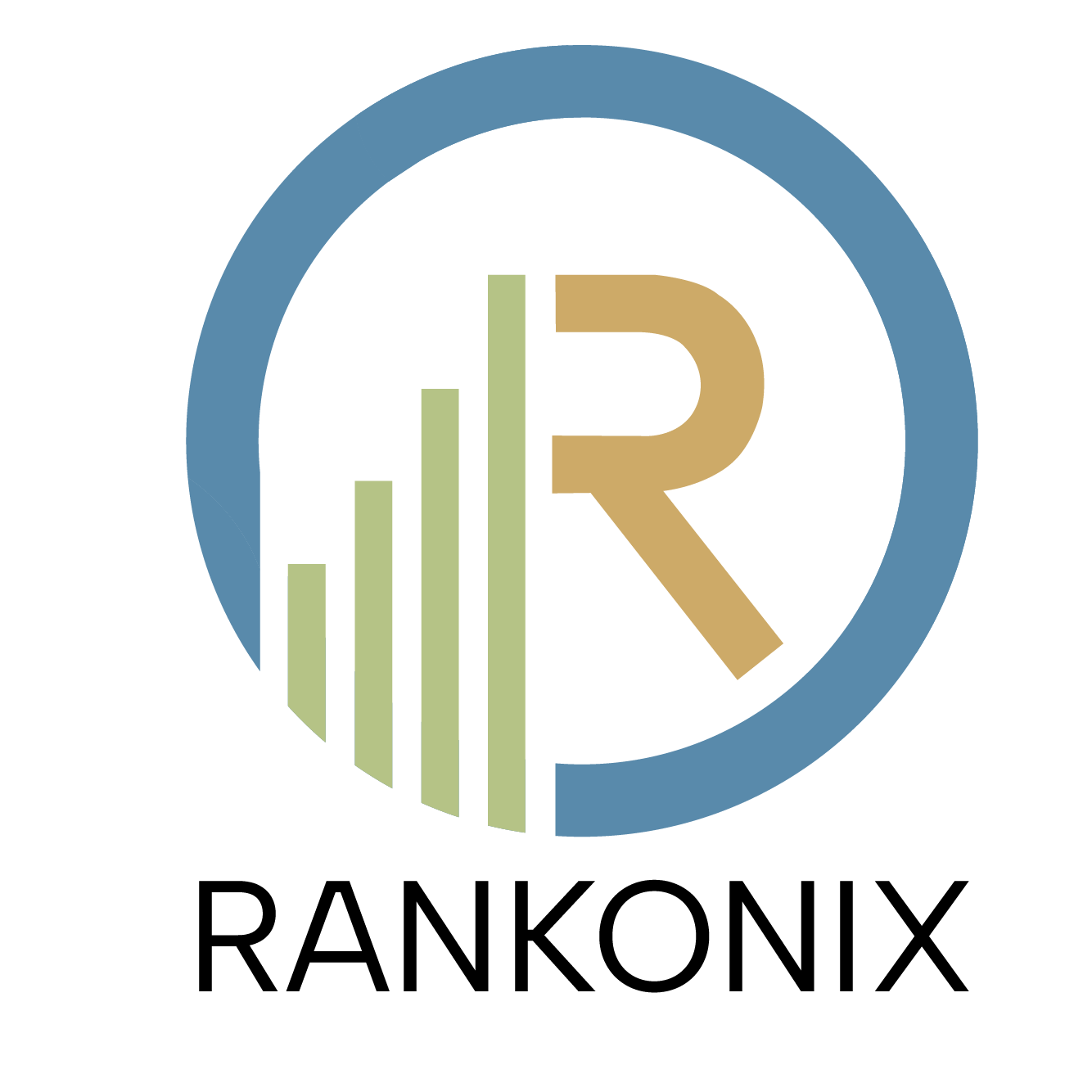

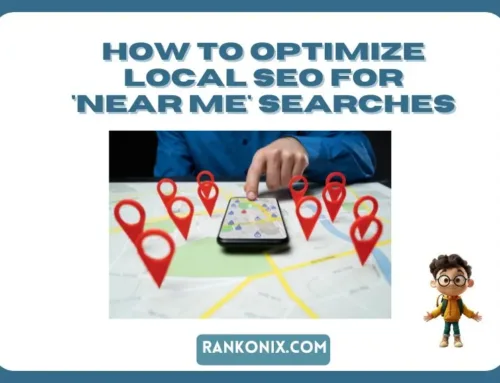
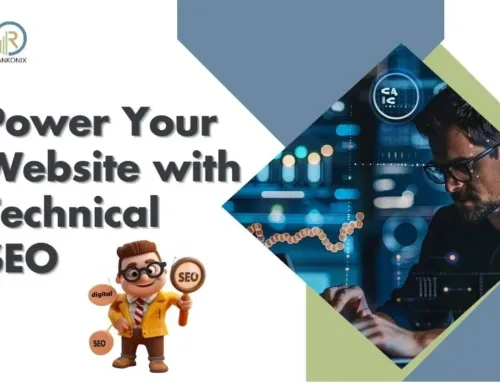
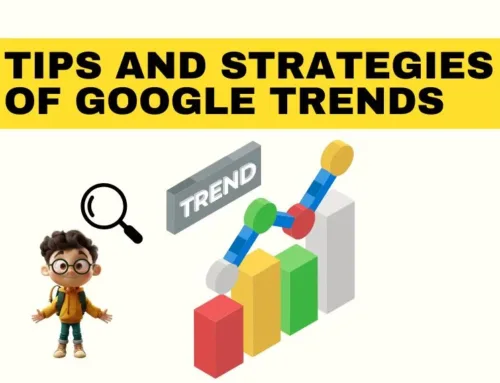

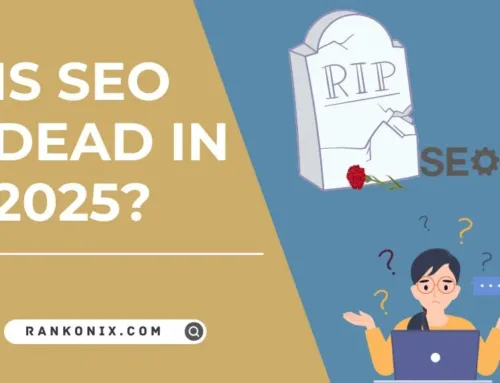

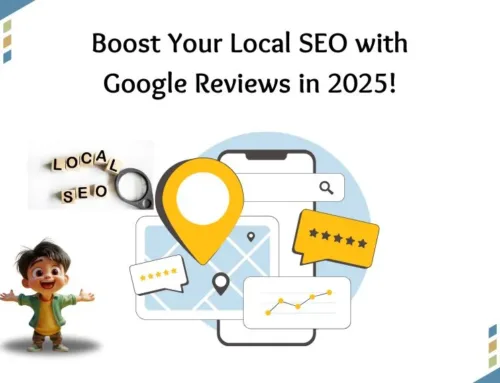
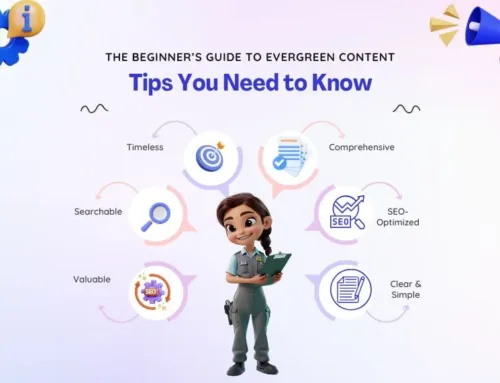
[…] your business to show up in local search results? With the right local SEO strategy, your business can rank higher on Google, especially in the coveted Google Maps 3-pack. This means […]
[…] Previous Next […]
[…] readers to convey the information to users who cannot see the image. Additionally, alt text plays a crucial role in SEO by giving search engines more context about your site’s content, which can improve rankings. […]
[…] snippets are a powerful tool for boosting SEO and driving organic traffic. These appear in “position zero,” the top spot on Google […]